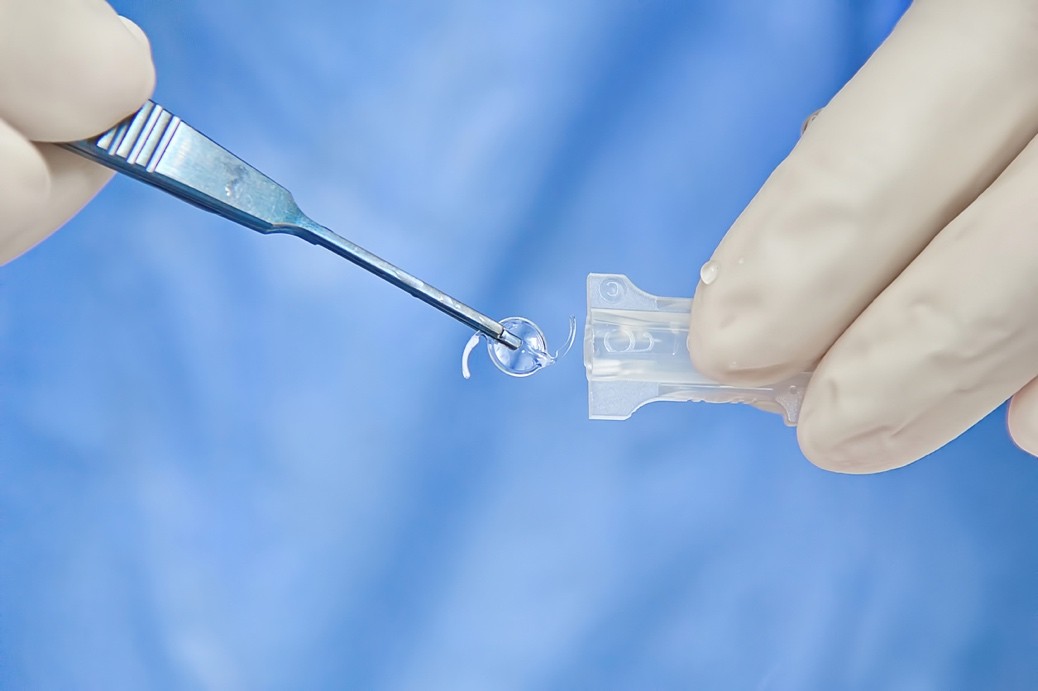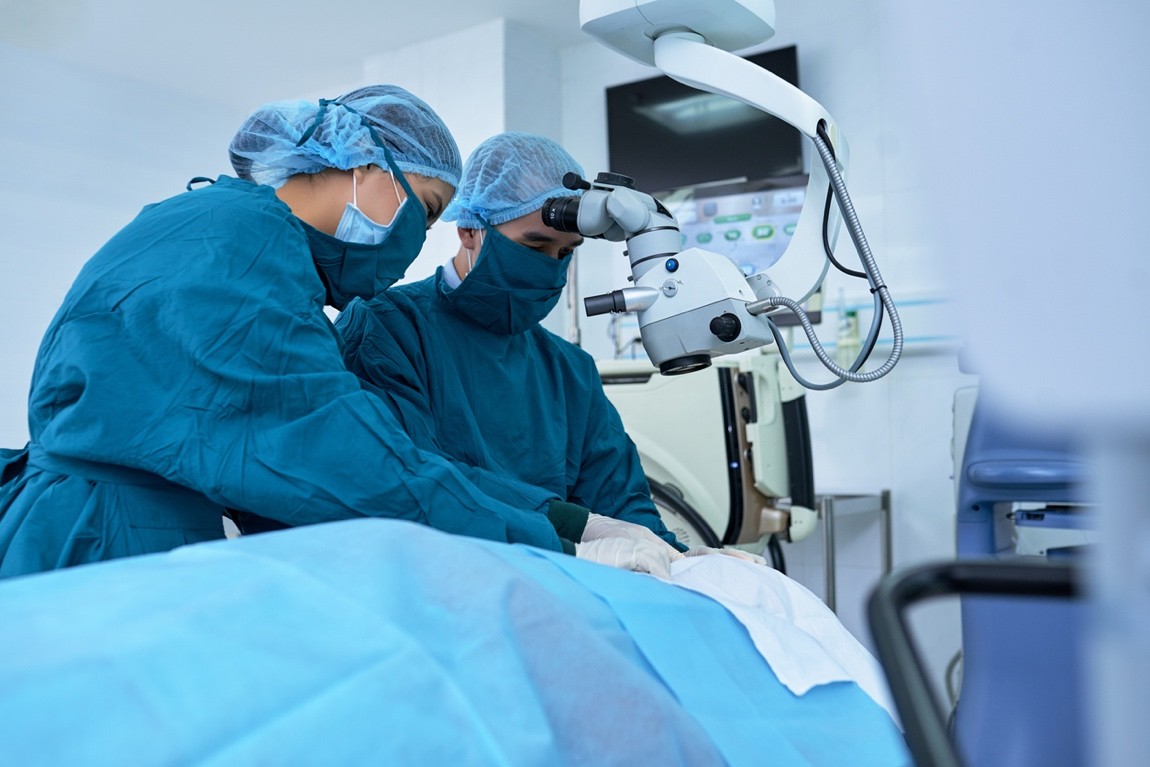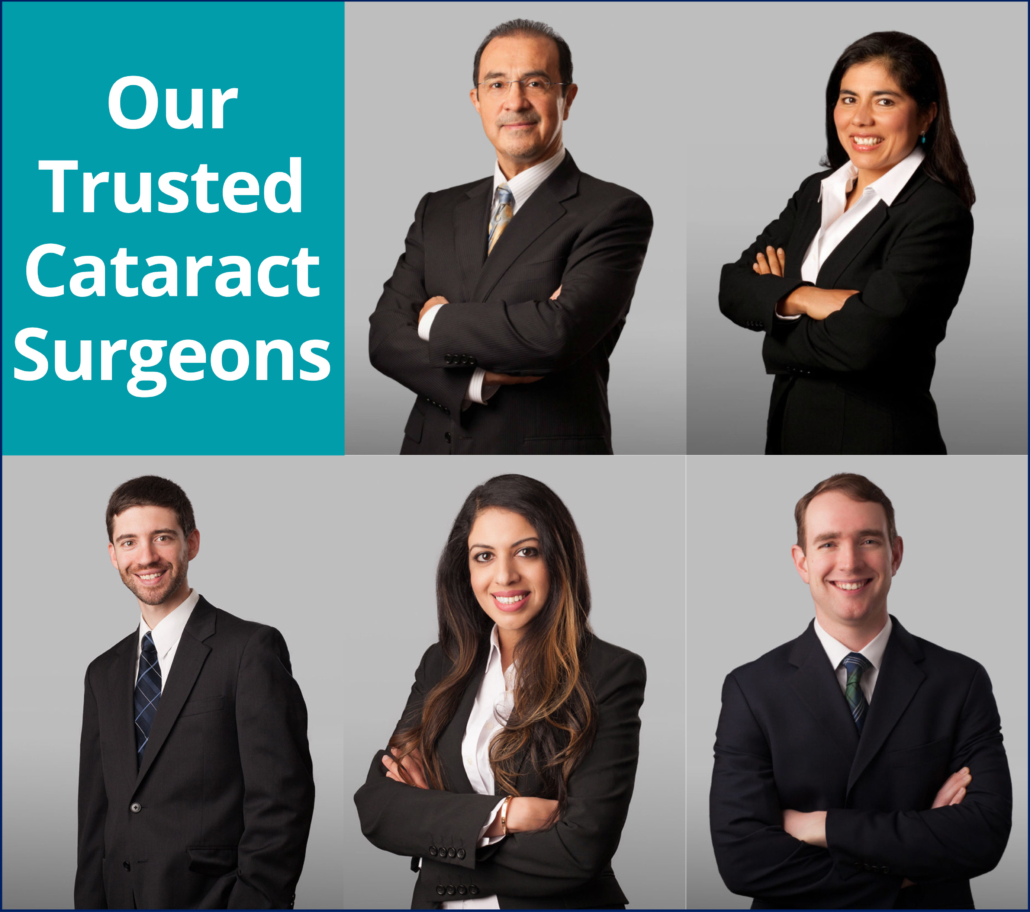Cataract Care
Do I Have Cataracts

The BEST way to know if you have or are developing a cataract is by scheduling a consultation with a qualified ophthalmologist. Our cataract surgeon will coordinate tests to properly assess your vision, the type of cataract you may have, and whether or not cataract surgery is right for you.
Lens Options
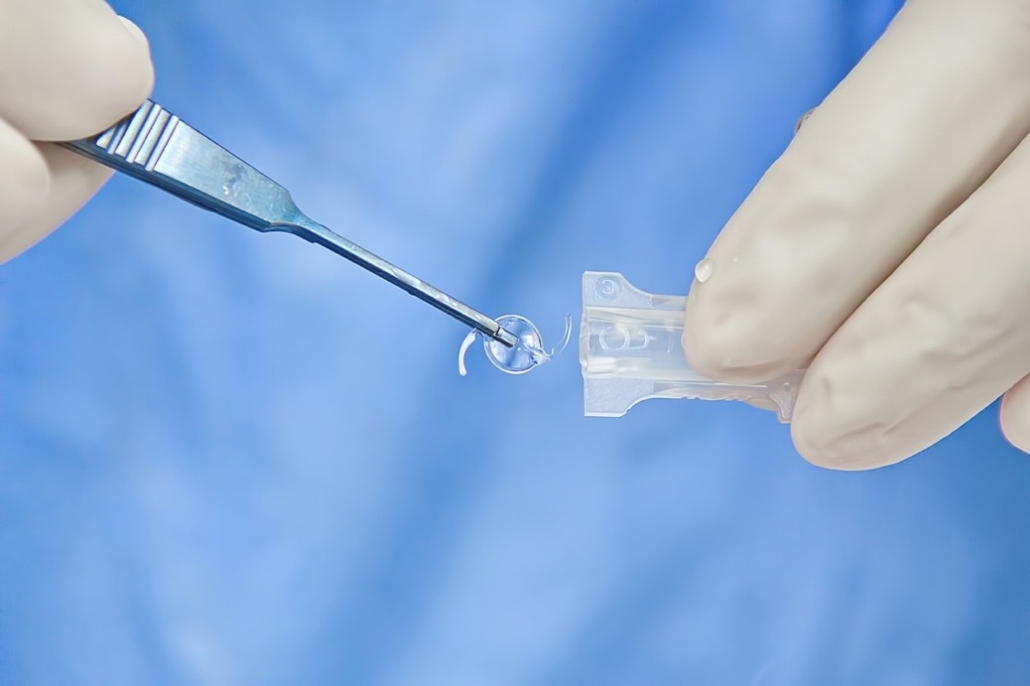
The implantation procedure is the same for all types of lenses. The main point of differentiation between the lenses is in the type of vision they provide. Premium lifestyle
lenses offers you a custom-designed vision option. Light Adjustable Lens (LAL) is a type of intraocular lens (IOL) that is possible to customize after cataract surgery. Learn more about our variety of other lens options during your surgical consultation.”
Cataract Technology
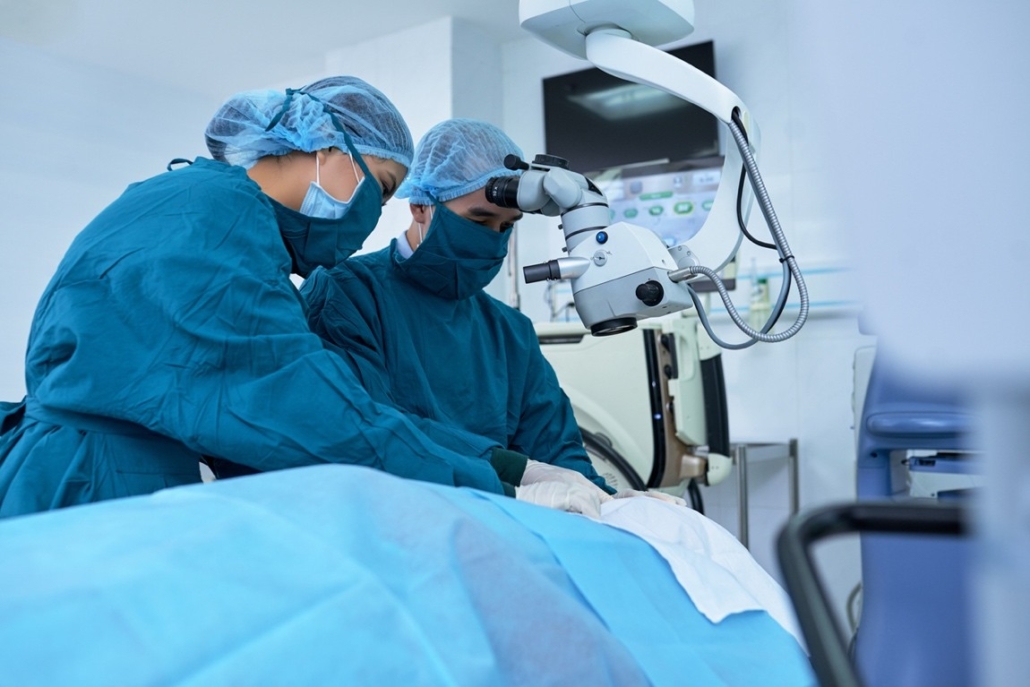
The diagnostic tools available to you today make the previous generations of technology seem comparatively imprecise. Cataract surgery is no longer limited to creating
a workable solution to the problem of a cloudy lens. With our ability to harness the power of computers to do calculations that once would have taken an incredible amount of time to now in just fractions of a second, your cataract has changed from a problem to an opportunity. An opportunity to see better than ever.
Surgical Consultation
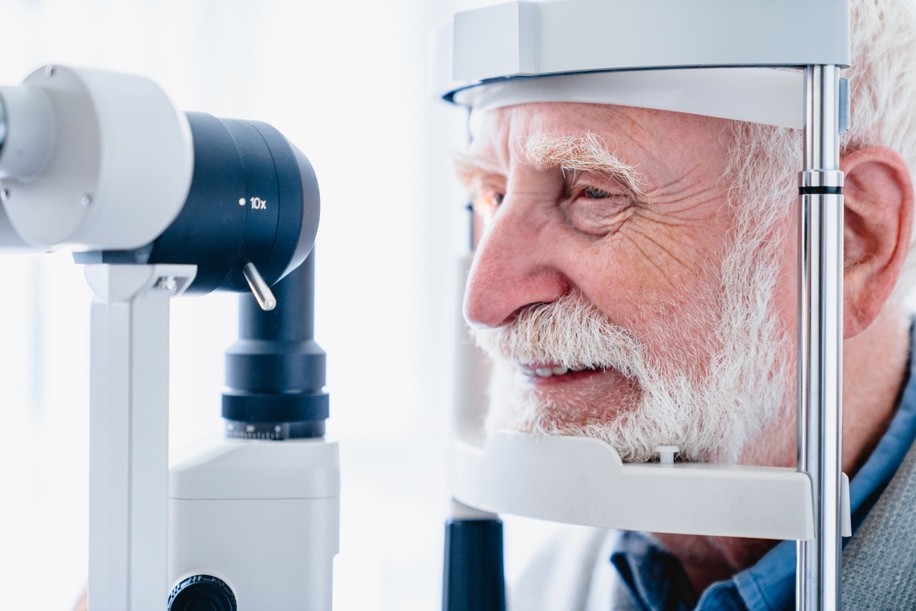
The first step in determining your candidacy for any procedure is to schedule a consultation and experience our comprehensive eye exam. This is the most complete eye
exam available today and includes a consultation with one of our experienced surgeons. Utilizing advanced diagnostic technology, our surgeons will not only evaluate your
candidacy for a procedure for but will look at the overall health of your eyes and establish a long term plan for your best vision.”
Are You Experiencing:
Blurry, Cloudy, or Dim Vision
Seeing “Halos” Around Lights
Fading or Yellowing of Colors
Experiencing Double Vision in the Affected Eye
Trouble Seeing at Night
About Us
At Visionary Eye Doctors, we provide the highest level of care with our boardcertified optometrists and ophthalmologists. Our renowned surgeons, along with our highly trained cataract care specialists, provide personalized attention, customized treatments, and the most advanced diagnostic and surgical technology available to ensure optimal results for our patients.
Why Visionary
Latest Technology
Our surgeons are familiar with all the treatment options available today including laser cataract surgery. From the latest advancement in femtosecond lasers to the latest in premium IOLs, we are experts. This innovative technology is revolutionizing cataract surgery and our patient’s ability to see better than ever.
Surgeon Expertise
Our board-certified surgeons are highly experienced and highly skilled. With their refined techniques, they have performed over 50,000 cataract surgeries with the highest level of patient care. Our cataract surgeons are familiar with all the current lens options offered today including Monofocal Lenses, Multifocal Lenses, and Intraocular Lenses.”
Results Matter
Our surgeons are committed to delivering exceptional outcomes and helping each patient achieve their desired visual goals. Our surgeons improve your full range of vision to minimize and hopefully eliminate dependence on glasses.
Integrated Surgery for Complicated Vision Cases
Often, our cataract patients may have other vision or medical issues, such as astigmatism, glaucoma, diabetes, or previous surgeries. Our surgeons’ vast experience, expertise, and specialized training provide patients with the confidence that their complex conditions are carefully evaluated.”
Book an Appointment
Frequently Asked Questions
What is a cataract?
A cataract is a clouding of the natural lens inside the eye. If there is a cloud outside and we can’t see well, we call it fog. If there is a cloud in your lens and you can’t see well, we call it a cataract. There are three main types of cataracts: nuclear, cortical, and posterior subcapsular
Does everyone get cataracts?
There is a clear lens inside each person’s eye that slowly changes from clear to cloudy throughout their life. The lens inside the eye is the clearest it will ever be before you are 10 years old. For each year after that, it gets more dense, less clear, and lets less quality light in than it did the previous year. When you are no longer able to see well enough to complete daily activities, that lens which has been changing for decades, graduates to being called a cataract. Other eye conditions that increase in likelihood with age include diabetic retinopathy and macular degeneration.
When should I have my cataract removed?
The answer to that is simple. You should have your cataract removed when you are no longer able to do things that you want because of your vision. This time comes for different people in different ways. Some can’t stand having poor night vision and want cataract surgery as soon as possible to fix it, others will be fine with much blurrier vision and wait longer. Neither case will be more difficult to remove. When your vision is no longer clear enough, contact us to schedule a consultation.
Can cataracts be fixed without surgery?
While medical research scientists are working on medicines that may help slow the changing of the lens, there is currently no medical way to prevent cataracts. There is no way to fix them without surgery.
What’s the difference between refractive cataract surgery and standard cataract surgery?
It comes down to how much you care about wearing glasses after surgery. There is no difference in safety between the two. If you don’t mind wearing readers or bifocals after cataract surgery, there is no reason to get refractive cataract surgery. If you want to be able to read a newspaper, search the web on your computer, or see which bottle is shampoo in the shower without glasses, then refractive cataract surgery is a better choice for you.
Is cataract surgery painful?
No. You may have an option of IV sedation at the surgery center. The eye drop that numbs your eye may “sting” a bit, and at times you may feel a sense of pressure.
Can I avoid having glasses or contacts after cataract surgery?
The answer to this question used to be, “There is no way to avoid glasses after cataract surgery.” Many people needed glasses for distance vision, and virtually everyone required glasses for computer and reading vision. Special lenses called Premium IOLs have now become available that can correct astigmatism, allow people to see well in the distance without glasses, and even correct near vision without the need for reading glasses. These special diagnostics and IOLs are not covered by insurance but can be easily substituted in place of a basic IOL.
What is the new IOL made of?
Every cataract surgery involves creating a small incision and placing an IOL where the old, cloudy lens once sat. The new clear artificial lens is made out of acrylic the vast majority of the time. This inert material has been used in eyes for over half a century and hasn’t caused allergic reactions inside the eye in tens of millions of cases.
What happens if I don’t have my cataracts removed?
Your vision will slowly get worse over time. While it is very rare for cataracts to become a danger to your health, they will always make your vision worse. If left long enough, hyper-mature cataracts (a very severe form) can reduce vision down to the point at which a person is only able to tell if there is a light shining in their eye or not. If your vision worsens from cataracts and you want to remove them, contact us to schedule a consultation.
Is cataract surgery safe?
Yes. Since it is one of the most common surgical procedures in the world, the safety and efficacy of modern cataract surgery has had a lot of time to be perfected to its current level. While any surgery has inherent risks and possible complications, they are thankfully either quite minor or quite rare. We can go over specific possible complications, such as retinal detachment, with each patient to clarify any questions. Contact us to talk about your specific situation today.
Does insurance cover cataract surgery?
Yes. If someone has cataracts that are decreasing their quality of life, then insurance will pay for cataract surgery. Insurance will pay to get the cloudy lens out of the eye and replace it with a clear lens (called an intra-ocular lens, or IOL). After that, a patient will still need glasses to correct the refractive error — that is, for reading and computer vision, and possibly distance vision — but the view will be “clear” again. Many patients now have the option to choose lenses that will allow freedom from glasses not possible with basic IOLs, but currently, insurance will only pay for the most basic IOL. Find out more about insurance on our insurance page or your provider’s website.
Can I correct astigmatism with cataract surgery?
Yes. Astigmatism can be corrected with a special procedure performed during the cataract surgery, where a tiny incision is made and a special IOL is placed in the eye after the cataract is removed. This lens is called a Toric Lens.
Another option is to receive LASIK after the procedure. Interested in learning more about LASIK? Check out our LASIK page here.
How long is the recovery from cataract surgery?
People are usually back to their regular activities the next day after cataract surgery. We ask that people hold off on lifting things heavier than a gallon of milk and avoid swimming for a week. Cataract surgery has a pretty effortless recovery compared to most other surgery types.
Can cataracts come back after surgery?
No. When they are gone, they’re gone. About 50% of patients will benefit from a one-time, 60-second, painless laser surgery at some point after the initial procedure if the capsule holding the new IOL gets cloudy. Outside of that, the vision will generally stay stable or even improve over the long term as long as the rest of the eye stays healthy
Patient Reviews
“Probably one of the most professional operations I’ve been to. The people are kind and friendly. The technology used amazed me. Highly recommend.”
Bob Sanders
“Expert staff, friendly and warm, modern and well equipped office.”
J.C.
“The practice offers high tech and cutting edge technologies. The process runs like a well-oiled machine. My experience was that every staff I encountered was pleasant and professional. I feel fortunate to be a patient of Visionary Eye Doctors.”
Jeanne Potter
Locations
Rockville, MD
One Central Plaza
11300 Rockville Pike,
Suite 1202
Rockville, MD 20852
Washington, DC
Van Ness Center
4301 Connecticut Ave.
Suite 125
Washington, DC 20008
Shady Grove
9707 Medical Center Dr
# 110
Rockville, MD 20850
Damascus, MD
26135 Ridge Road
Damascus, MD 20872


